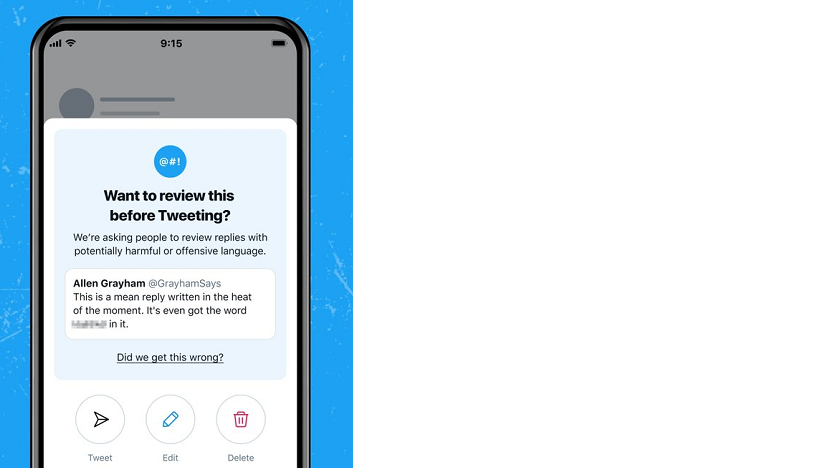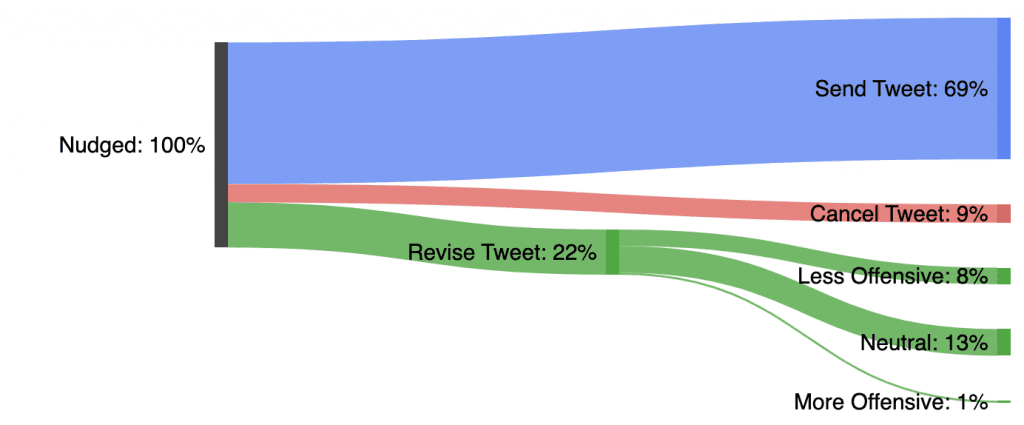According to Official Twitter Blog, they have recently conducted new research to understand the effectiveness of its warning prompts on potentially offensive tweet replies, which was initially first rolled out in 2020, and now has been re-launched last year, as a means to add a level of friction, and consideration, into the tweet process. This new update encouraged people to pause and reconsider a potentially harmful or offensive reply before they hit send.
Taking a closer look at users’ own words before posting could foster healthier conversations. Twitter’s warning prompts use automated detection to pick up any likely offensive terms within tweet replies, which then triggers this alert to add a moment of hesitation in the process.
Why did Twitter decide to roll out this new update?
Offensive content online is a familiar challenge for social platforms. A common approach used to address this problem involves identifying and removing harmful content reactively after it’s been posted. As such, there’s been an industry-wide shift toward more proactive strategies, like these prompts that check in with individuals posting on Twitter before they even send the content.

Prompts change actions at the moment
We found that out of every 100 Tweets where users were prompted to reconsider, the following actions were taken:
- 69 were sent without revision
- 9 were canceled
- 22 were revised
The quality of the 22 revisions can be broken down further:
- 8 Tweets were revised to be less offensive than the original Tweet
- 13 Tweets were rewritten but were neither more nor less offensive than the original Tweet
- 1 Tweet was revised to be more offensive than the original Tweet
Also Read: Netflix launches a new show ‘Ranveer vs Wild with Bear Grylls’ and will see the adventures

Prompts change future action
We also found the effects of being presented with a prompt extended beyond just the moment of posting. We saw that:
- After just one exposure to a prompt, users were 4% less likely to compose a second offensive reply.
- Prompted users were 20% less likely to compose five or more prompt-eligible Tweets.
- Prompted users received fewer offensive replies themselves. The proportion of replies to prompt-eligible tweets that were offensive decreased by 6% for prompted users.
This represents a broader and sustained change in user behavior and implies that receiving prompts may help users be more cognizant of avoiding potentially offensive content as they post future Tweets.
While it is clear that people will reconsider their replies, we also found that people who are exposed to a prompt are less likely to compose future offensive replies.


